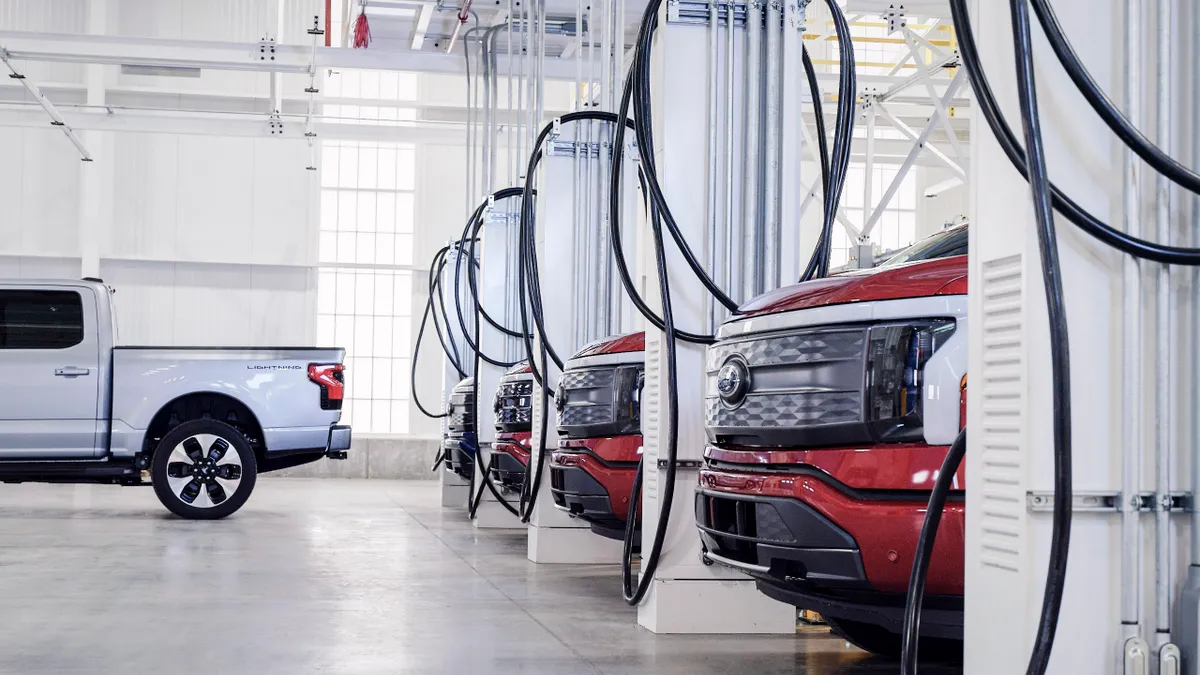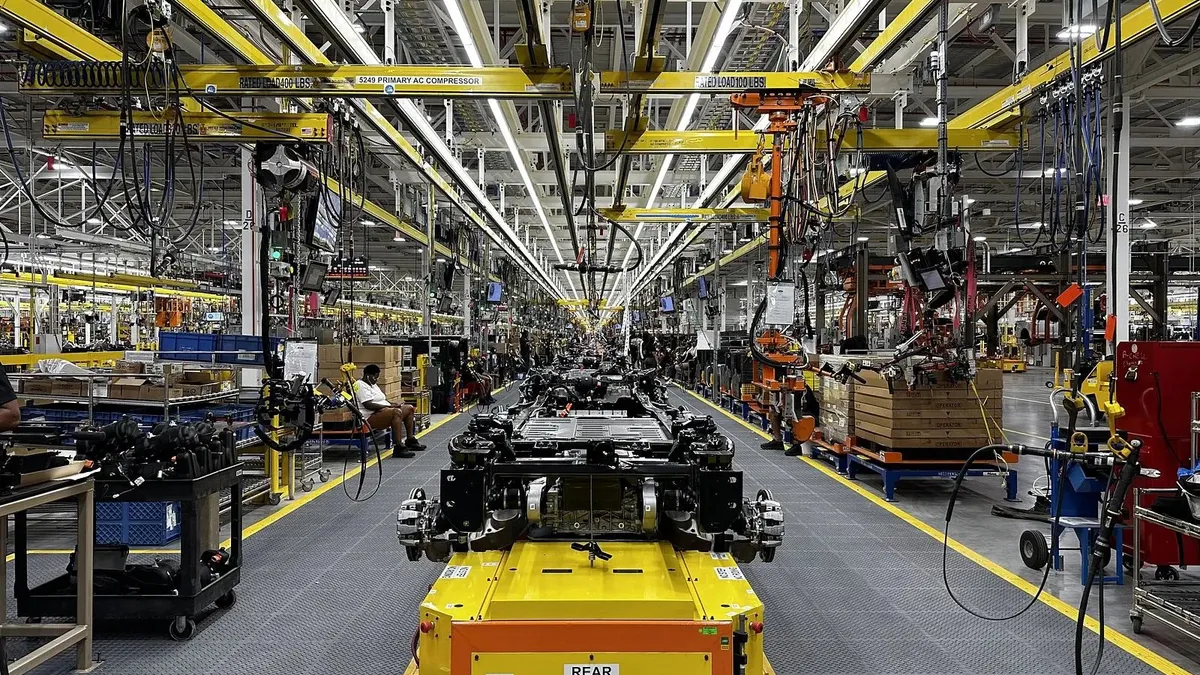Dive Brief:
- All Ford Motor Co. dealers can soon sell electric vehicles after the automaker ends its Model e EV program on July 1, company spokesperson Martin Gunsberg confirmed in an email to Automotive Dive. The program put certain stipulations on dealers that wished to sell EVs.
- The program resulted in pushback from some dealers over the upfront investment required of roughly $500,000. The investment covered the installation of EV chargers and other training requirements, such as ensuring that dealership employees have knowledge of EV technology, including charging systems and maintenance procedures.
- The new plan replaces the voluntary Ford Model e EV program for dealers announced in 2022, which had approximately 1,400 enrolled dealers, according to Ford.
Dive Insight:
Under the outgoing program, Ford required dealers to invest around $500,000, which included installing five EV chargers. For Model e Certified Elite dealers, the program’s investment could be as high as $1.2 million, which included the costs of installing two DC fast chargers and at least one public charger made available on Ford’s Blue Oval charging network.
Ford first announced revisions to its Model e EV program in November 2023 to make it less costly after receiving pushback from some dealers. The changes, which took effect on Jan. 1, included lowering the number of chargers required and reducing dealer training requirements that would have dropped investment costs by about 50%. Under the revised plan, dealers were directed to install the EV chargers by June 30, 2024.
“Ford is making electric vehicles more widely available across America by expanding EV sales and service to all 2,800 of its U.S. dealers starting July 1,” Gunsberg said in an email. “We believe that the evolution of our industry will be driven by our customers.”
Prior to the update, Ford dealers and dealer associations filed legal challenges in at least six states, saying the automaker’s EV program requirements violated dealer franchise laws. Others were dissatisfied with the mandatory financial commitment.
General Motors also received pushback from Buick dealers last year over its own investment requirements to sell EVs, which were at least $300,000. GM offered buyouts to around half of its Buick dealers that declined to sell and service its future EVs. Although Buick currently has no EVs on sale, GM publicized plans to transform the luxury nameplate into an EV-only brand by the end of the decade.














